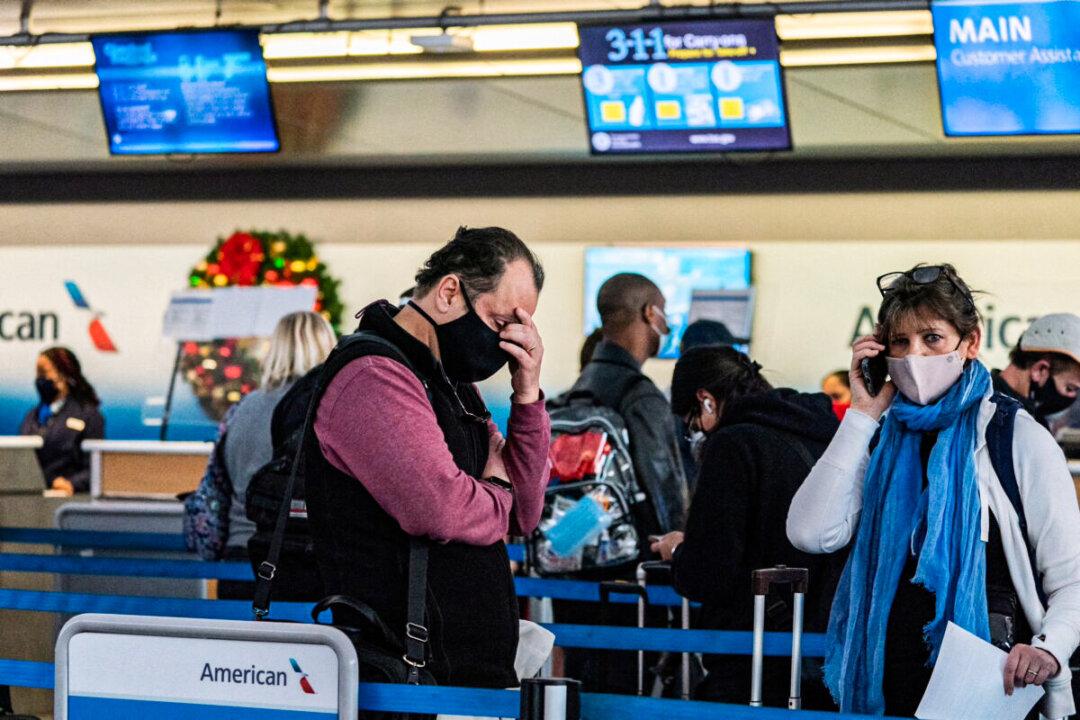Flight cancellations keep on increasing as travel disruptions from Omicron-related staff shortages and bouts of bad weather spoil passenger plans and attempt to derail a steady recovery from the pandemic.
Over 3,300 flights were canceled with more than 11,600 delays, out of which 1,625 were flying into or out of the United States on Friday, according to data from tracking website FlightAware. On Saturday, the number of cancellations reached over 4,100, with almost 2,400 U.S.-based flights—Southwest has registered 471 cancellations, American 196, Delta 186, United 150, and JetBlue 118.





